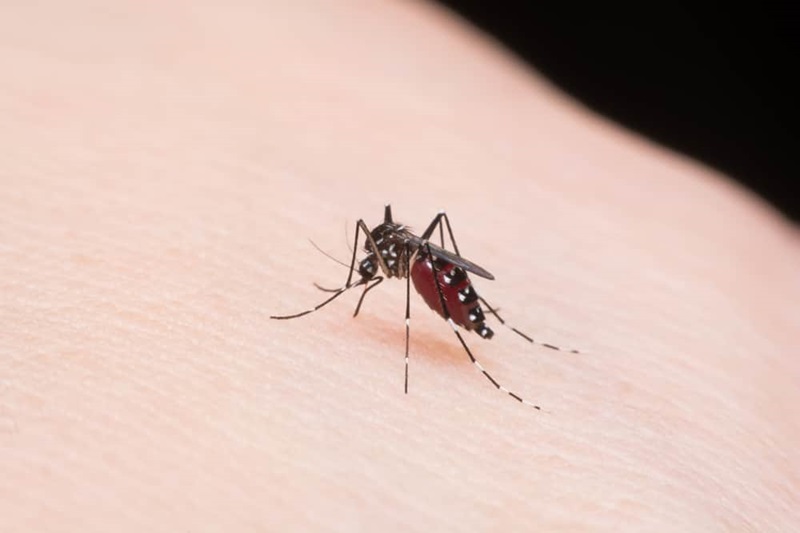Mosquitoes put a lot of life into a little bit of time. While you may think their main goal is biting (and pestering) you, it's actually reproducing. Although most mosquito species only live a few weeks, they spend most of their time growing.
Mosquitoes begin breeding about 28 hours after they reach adulthood. Female mosquitoes produce between 50-500 eggs depending on the species and environmental factors. Subsequent broods may have fewer eggs, but a single female mosquito may produce up to 10 broods throughout her life.

The 4 Mosquito Life Cycle Stages
Each mosquito undergoes the same general life cycle, passing through three stages of growth and development before you find the adult, the fourth and final stage, buzzing around your yard.
- Egg – After a blood meal, the female lays her eggs in an area prone to flooding or stagnant water. Most mosquito eggs will hatch within 24–72 hours.
- Larvae – After the eggs hatch, mosquito larvae, known as “wigglers," emerge. The amount of time between the larval and pupal stage varies depending on species and weather conditions, but it typically lasts a few days. Most species have four larval stages, or molts, before they pupate.
- Pupae – After larval stage, mosquitoes enter the pupal stage. During this stage, the pupae, also called “tumblers," stay near the surface of the water. They breathe air and form a pupa casing, inside of which they transform into adults. The pupal stage usually lasts from one to four days depending on species and water temperature.
- Adult – After the pupal stage is complete, an adult mosquito will emerge. Typically, the insect will rest on the water's surface until its legs and wings are strong enough to support it.
Generally speaking, the complete metamorphosis that mosquitoes go through can range from four days to one month.
What's a Typical Mosquito Lifespan?
Surviving isn't easy for mosquitoes. Many die during one of the life cycle stages, while others are killed by human intervention or other predators. One of these scenarios usually happens before mosquitoes get the chance to die of "old age," which is usually around one or two months for females and a few weeks for males (at most).
How Long Does a Mosquito Live After Biting Someone?
While some insects like honeybees die after they bite someone, mosquitoes don't. In fact, they'll keep biting until they've ingested enough blood to keep them full, which can be up to four times their body weight.
Male mosquitoes don't bite because they don't need the blood for reproductive purposes. Female mosquitoes, after they bite, can live up to a month or two. And during that time, they may lay up five to ten broods of more than 100 eggs each.
How to Prevent Mosquitoes
While it may be somewhat comforting to know that mosquitoes don't live long lives, the real reason for concern is their propensity for growing their population.
Knowing their preferred breeding grounds, and removing them, can help homeowners stave off infestations in their yards.
- Removing sources of standing water, such as old tires and buckets, can help reduce the chances of mosquitoes laying eggs near your home.
- You can also change water in birdbaths weekly and pet bowls daily. You can also install moving elements to decorative ponds and water features to help deter the insects.
- Additional tips for mosquito prevention include cleaning your gutters regularly, practicing proper pool maintenance, sealing gaps around doors and windows, and replacing outdoor lighting with “bug lights."
- Of course, proper control requires managing both adult mosquitoes and their eggs, and many do-it-yourself methods are ineffective at doing this.
Learn about the mosquito service at Terminix® and how it can help you and your family enjoy more time in your yard.
